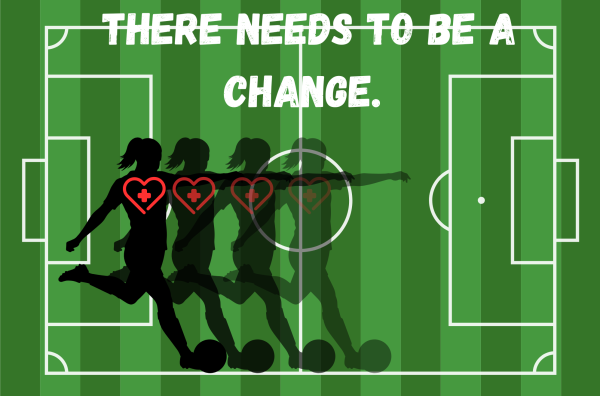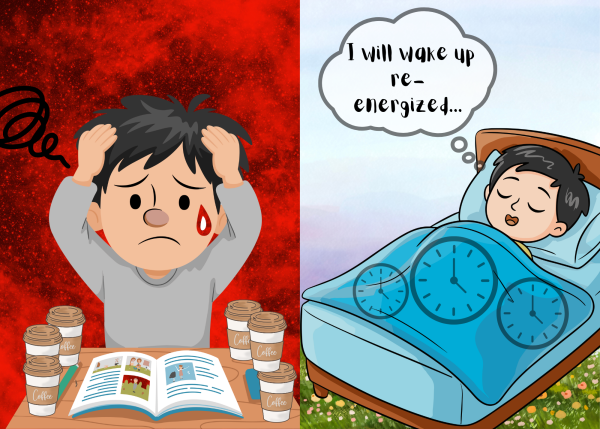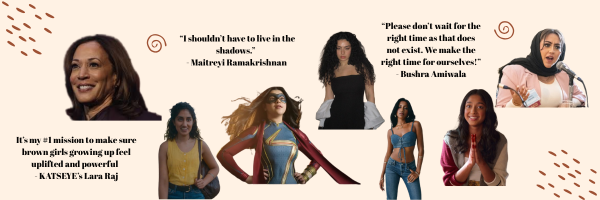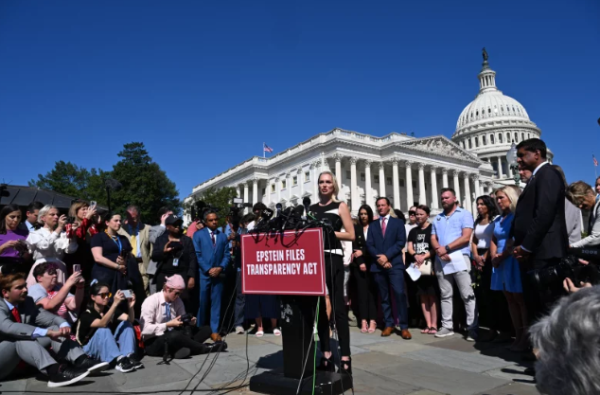The War on Drugs is ongoing, Black America is the target
“Today’s lynching is a felony charge. Today’s lynching is incarceration. Today’s lynch mobs are professionals. They have a badge; they have a law degree. A felony is a modern way of saying, ‘I’m going to hang you up and burn you.’ Once you get that F, you’re on fire.” – Michelle Alexander
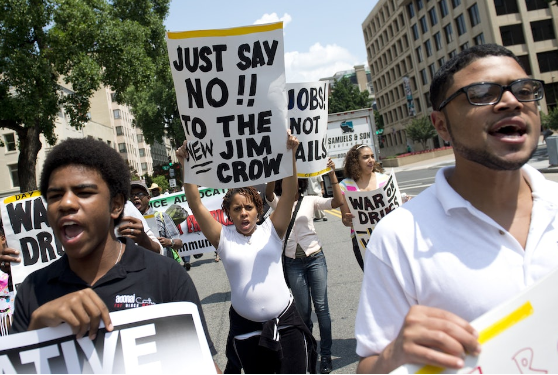
Photo accredited to The New Republic
The War on Drugs started with President Ronald Reagan, but we can end it with refocusing our efforts on improving the Criminal Justice System.
The War on Drugs is our nation’s most prolonged war. We started the war in June of 1971 when United States President Richard Nixon declared drug abuse to be “public enemy number one.” It has completely militarized American law enforcement, used trillions of taxpayer dollars, and utterly ruined the lives of many Black men and women, targeting the poorest neighborhoods and claiming the lives of millions. The War on Drugs made “Black” synonymous with “criminal”, imprisoning a larger percentage of America’s black population than South Africa did at the height of apartheid.
No country in the world incarcerates more of its citizens than the United States. We incarcerate more people than nations like China, Russia, Iran and Cuba, all countries we believe to be autocratic and repressive.
The War on Drugs and the “tough-on-crime” movement have led to an eruption in the prison population, contributing to the creation of the prison-industrial complex. The prison-industrial complex is made up of politicians who play on fear by getting “tough on crime,” and companies that profit from cheap prison labor and the exploitation of incarcerated people. The war only provided a new system of fueling private prisons. Prisons play a direct role in capital accumulation since their operation generates profit. The wealthiest opponents of decriminalization are private prison corporations; they make billions annually by incarcerating people. From a business perspective, the yearly increase in the prison population is “good news”.
To put it plainly, the war was built on a foundation of racism. In my opinion, the War on Drugs is the new Jim Crow, because today, Black people are four times more likely to be arrested for marijuana possession, despite corresponding usage rates amongst other races. In total, approximately 57 percent of people incarcerated in state prisons, and 77 percent incarcerated in federal prisons for drug offenses are Black or Latinx. And today, it is perfectly legal to discriminate against criminals in nearly all the ways that it was once legal to discriminate against African Americans. Employment discrimination, housing discrimination and denial of the right to vote are all legal once you’re considered a felon. Mass incarceration serves as a new form of racial control. Through the words of Michelle Alexander, we have not ended racial caste in America; we have merely redesigned it.
And the genius of our new caste system lay within the idea that crime is voluntary. People choose to commit crimes, therefore they deserve to be in prison. But all of us are criminals in some form or another. All of us violate the law at one point in our lives. Truth is, if you have ever sped ten miles over the speed limit on the street you’ve put yourself and others in more danger than someone smoking marijuana in the privacy of their own home. Yet there are people serving life sentences for first-time drug offenses, which is genuinely ridiculous.
Nixon’s own domestic policy advisor, John Ehrlichman, admitted that the Nixon campaign had two enemies; “the antiwar left and Black people”. He continued claiming that drug laws gave an “excuse to arrest their leaders, raid their homes, break up their meetings, and vilify them night after night on the evening news. Did we know we were lying about the drugs? Of course we did.”
And the same year Nixon launched his drug war, he was recorded with Ronald Reagan calling Africans “monkeys” and “cannibals,” a partner who would later become president as well and make matters worse.
Reagan greatly expanded the reach of the drug war beginning in 1981. The Anti-Drug Abuse Act of 1986 was one of his most significant contributions to the drug war. The act gave over a billion dollars in funding for the drug war and increased the number of drug offenses with mandatory minimum sentences. One of the most significant and controversial aspects of this act was the changes in sentencing for possession of crack cocaine. As a result, the possession of 5 grams of crack cocaine, which was disproportionately consumed by African Americans, triggered an automatic five-year sentence. On the other hand, 500 grams of powder cocaine, which was mostly consumed by rich Whites, triggered the same punishment. The disparity is apparent, establishing a racially discriminatory 100:1 sentencing gap.
In 1984 his wife, Nancy Reagan, contributed to this war with her “Just Say No’ anti-drug campaign. “A little girl raised her hand,” she remembered, “and said, ‘Mrs. Reagan, what do you do if somebody offers you drugs?’ And I said, ’well, you just say no.’” While it was created to deter children from engaging in illegal drug use, this outlook was overly simplistic and put too much emphasis on deterrence tactics rather than drug treatment and substance abuse programs. It presented drugs as the consequence of personal failure in impacted Black communities rather than a public health crisis for all of America. Additionally, the “Just Say No” message has proven to be completely useless in the face of the opioid epidemic, which largely stems from prescription medications. And according to a biography written by Washington Post journalist Karen Tumulty, Reagan took so many “uppers and downers” that White House doctors had to tell the president his wife had a pill problem.
Continuing down the line of presidents, The Violent Crime Control and Safe Streets Act of 1994, signed by President Bill Clinton, is the largest crime bill in this country’s history. It featured 100,000 new police officers (leading to increased racial profiling), allocated $9.7 billion for prisons, authorized the death penalty for dozens of federal crimes, mandated life imprisonment for a third felony (also known as the “three strikes and you’re out” rule), and provided gang enhancements that allowed minors to be prosecuted as adults. Clinton, while signing the bill, said, “Gangs and drugs have taken over our streets and undermined our schools.” Tough-on-crime sentencing has resulted in a major prison boom.
Truth is, the Clintons have contributed greatly to the War on Drugs. In 2015, Hillary Clinton met with Black Lives Matter (BLM) protestors. BLM’s Daunasia Yancey confronted Clinton and said, “You and your family have been personally and politically responsible for policies that have caused health and human services disasters in impoverished communities of color through the domestic and international War on Drugs that you championed as First Lady, Senator and Secretary of State.” Clinton faced many issues throughout her campaign, especially as consequence for her husband’s actions.
Notoriously, Clinton rejected a U.S. Sentencing Commission recommendation to eliminate the disparity between crack and powder cocaine sentences. And in 1996, the Central Intelligence Agency (CIA) was accused of being a crack dealer for the Black community. A series of “expose” articles in the San Jose Mercury-News by reporter Gary Webb claimed that there was a drug triangle during the 1980s that linked CIA officials in Central America, a San Francisco drug ring, and a Los Angeles drug dealer. African American leaders pointed to Webb’s articles as proof of a mastermind plan to eliminate inner-city Black America.
President George W. Bush allocated plenty of money to the war as well. This era resulted in the rapid escalation of the militarization of domestic drug law enforcement. By the end of his term, there were around 40,000 paramilitary-style SWAT raids on Americans every year, mostly for nonviolent drug law offenses.
President Donald Trump’s, during his reign, threatened to “build a wall” to keep drugs out of the country, and called for harsher sentences for drug law violations and the death penalty for people who sold drugs.
It’s clear that the war’s main focus is on prosecution as opposed to treatment. Instead of throwing drug offenders into prison for substance abuse, we must help them. Sending individuals to drug rehabilitation is a much more positive approach to this issue. They’re more likely to graduate from an addiction program with the skills they need to reintegrate into society. It’s the most effective and humane way to solve this problem. Our school has done a great job at recognizing this; according to Dean Erika Bougdanos, when a student is caught with nicotine for the first time they are required to complete Vape Educate, an online educational program about the risk associated with nicotine. This is far more productive than detention, suspension, or expulsion because regardless they are more likely to continue to use it in comparison to the outcome if they receive proper education and treatment for the abuse.
Along with utilizing rehabilitation, we need to eliminate mandatory sentences. Prosecutors use mandatory minimums in over half of all federal cases, disproportionately impacting poor Black people and exponentially growing the federal prison population. Prosecutors bring mandatory minimums 65 percent more often against Black defendants. They place the prosecutor as the ultimate decision-maker rather than a neutral judge. They obliterate individualized justice, which is key to any fair sentencing system; these one-size-fits-all sentencing laws give drug addicts and small-time offenders enormous pre-determined sentences without considering all the circumstances of the crime or individual.
We also need to defelonize low-level drug offenses. This means that minor drug law violations are reduced from felonies to misdemeanors. It will reduce the number of people incarcerated, will increase uptake into drug treatment, will redirect resources from criminal justice to health systems, will diminish unjust racial disparities in drug law enforcement, and will minimize the social exclusion of people who use drugs so they’re more likely to seek help.
President Joe Biden has stated that it was a “mistake” to support legislation that fed into the drug war and increased incarceration and now says we need a compassionate approach to abusive drug use. And I agree. I just hope that these are not empty promises because we can no longer continue functioning under such an oppressive system.

Jasmine Nichols is a Senior at Niles North who aims to write about contemporary issues within the black community. She enjoys learning about black history,...



